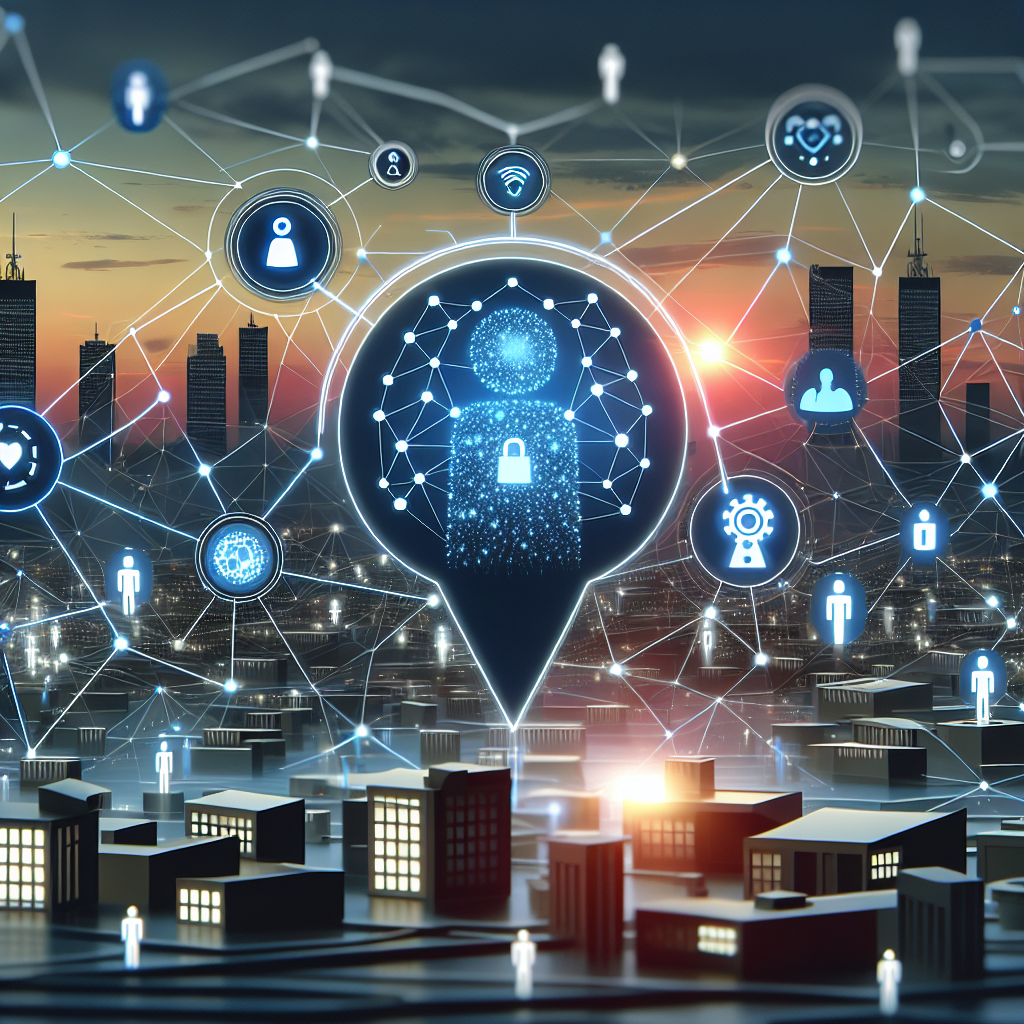In today’s digital age, government agencies are increasingly becoming targets for cyber attacks. From sensitive information to critical infrastructure, these organizations store and manage a wealth of data that is highly valuable to malicious actors. As a result, the need for robust cybersecurity measures has never been more critical. One technology that is playing a key role in bolstering the defenses of government agencies is artificial intelligence (AI).
AI has the potential to revolutionize cybersecurity by automating threat detection, response, and mitigation. By leveraging machine learning algorithms, AI can analyze vast amounts of data in real-time to identify patterns and anomalies that may indicate a cyber attack. This proactive approach allows government agencies to stay one step ahead of cyber threats and respond quickly to potential breaches.
One of the key benefits of AI in cybersecurity is its ability to adapt and evolve over time. Traditional cybersecurity solutions rely on static rules and signatures to detect threats, which can quickly become outdated as cyber attackers develop new tactics and techniques. In contrast, AI systems can learn from past attacks and continuously improve their ability to detect and respond to emerging threats.
AI can also be used to enhance the efficiency of cybersecurity operations within government agencies. By automating routine tasks such as log analysis and incident response, AI can free up human analysts to focus on more strategic tasks that require human judgment and expertise. This can help government agencies to better utilize their cybersecurity resources and respond more effectively to cyber threats.
However, while AI holds great promise for enhancing cybersecurity, it also presents new challenges and risks. As AI systems become more sophisticated, they may also become more vulnerable to exploitation by malicious actors. For example, AI algorithms can be manipulated or poisoned to generate false positives or evade detection, leading to potentially catastrophic consequences for government agencies.
To address these risks, government agencies must implement robust cybersecurity measures to protect their AI systems from cyber attacks. This includes ensuring that AI systems are properly secured, regularly updated, and monitored for suspicious activity. Government agencies should also invest in training their cybersecurity teams to effectively manage and mitigate the risks associated with AI technologies.
In addition to enhancing cybersecurity, AI can also play a crucial role in improving the overall resilience of government agencies to cyber attacks. By analyzing vast amounts of data in real-time, AI systems can help government agencies to identify vulnerabilities and prioritize their cybersecurity efforts. This proactive approach can help to prevent cyber attacks before they occur and mitigate their impact if they do occur.
Furthermore, AI can also be used to enhance collaboration and information sharing between government agencies. By analyzing and correlating data from different sources, AI systems can help government agencies to identify and respond to cyber threats more effectively. This can help to improve the overall cybersecurity posture of government agencies and enhance their ability to protect critical infrastructure and sensitive information.
Overall, the role of AI in cybersecurity for government agencies is rapidly evolving and becoming increasingly important. By leveraging the power of AI, government agencies can enhance their cybersecurity defenses, improve their resilience to cyber attacks, and better protect critical infrastructure and sensitive information. However, it is crucial for government agencies to implement robust cybersecurity measures to protect their AI systems from cyber attacks and mitigate the risks associated with AI technologies.
FAQs:
1. What are some examples of AI technologies used in cybersecurity for government agencies?
– Some examples of AI technologies used in cybersecurity for government agencies include machine learning algorithms, natural language processing, and anomaly detection systems.
2. How can AI help government agencies to improve their cybersecurity defenses?
– AI can help government agencies to improve their cybersecurity defenses by automating threat detection, response, and mitigation, analyzing vast amounts of data in real-time to identify patterns and anomalies that may indicate a cyber attack, and enhancing the efficiency of cybersecurity operations.
3. What are some of the risks associated with using AI in cybersecurity for government agencies?
– Some of the risks associated with using AI in cybersecurity for government agencies include the potential for AI algorithms to be manipulated or poisoned by malicious actors, leading to false positives or evasion of detection, as well as the need for government agencies to implement robust cybersecurity measures to protect their AI systems from cyber attacks.
4. How can government agencies protect their AI systems from cyber attacks?
– Government agencies can protect their AI systems from cyber attacks by ensuring that AI systems are properly secured, regularly updated, and monitored for suspicious activity, as well as investing in training their cybersecurity teams to effectively manage and mitigate the risks associated with AI technologies.

